What I would have liked to know before I travelled to… TOGO
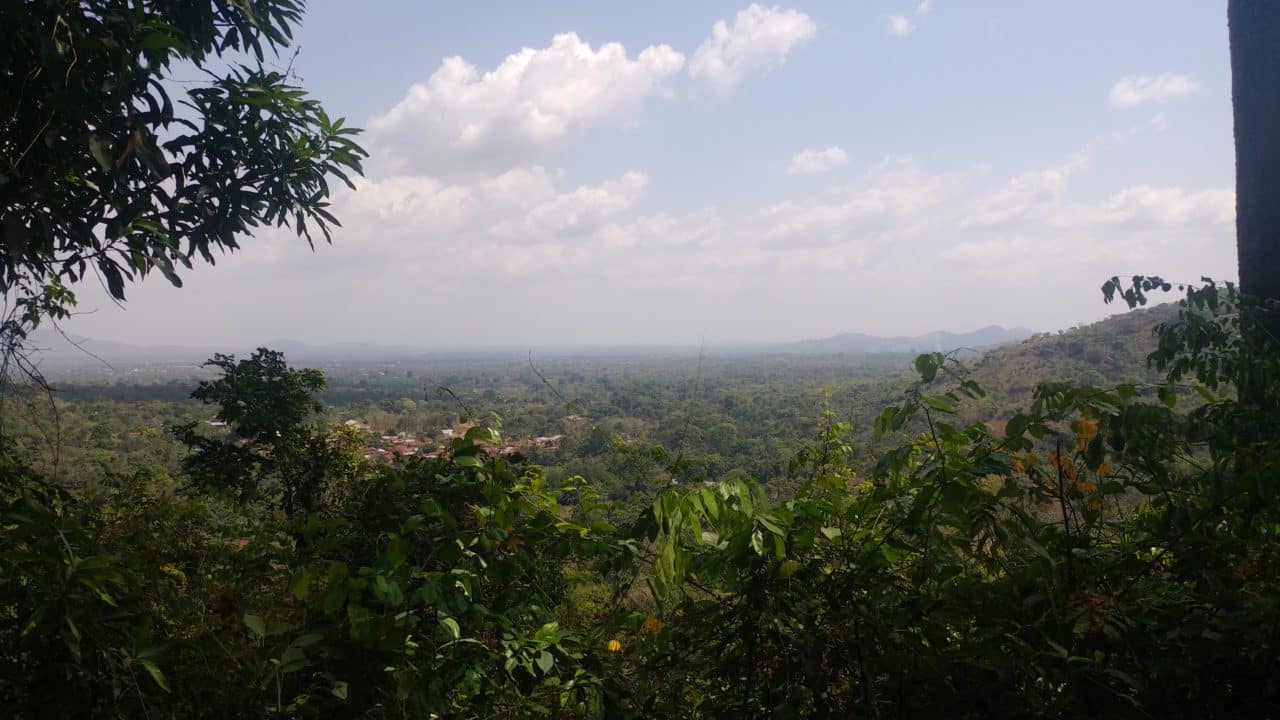
If you travel to Togo as a German, you can be assured that you will often explain where that is. The country is hardly known in Germany – despite 32 years of colonial occupation. Although Togo is hardly bigger than Lower Saxony, it has a lot to offer: from beautiful beaches to tropical forests to dry savanna landscapes in the north. But I didn’t just take pretty photos back home from my two months there, I also experienced nice encounters, exciting discussions, as well as difficult times. Here is a list of things I would have liked to have known before I got there:
- Languages: There are between 37 and 42 different local languages in Togo (in such a small country!). However, many people are unable to write their mother tongue because school lessons are held exclusively in French. Accordingly, almost everyone there can speak French, and in more academic circles some speak English. The French accent, that is spoken in Togo and seems quite unfamiliar to Europeans, shouldn’t be underestimated: I actually thought my language skills were quite good, but then really had problems in communicating at all – that made arriving there quite difficult for me.
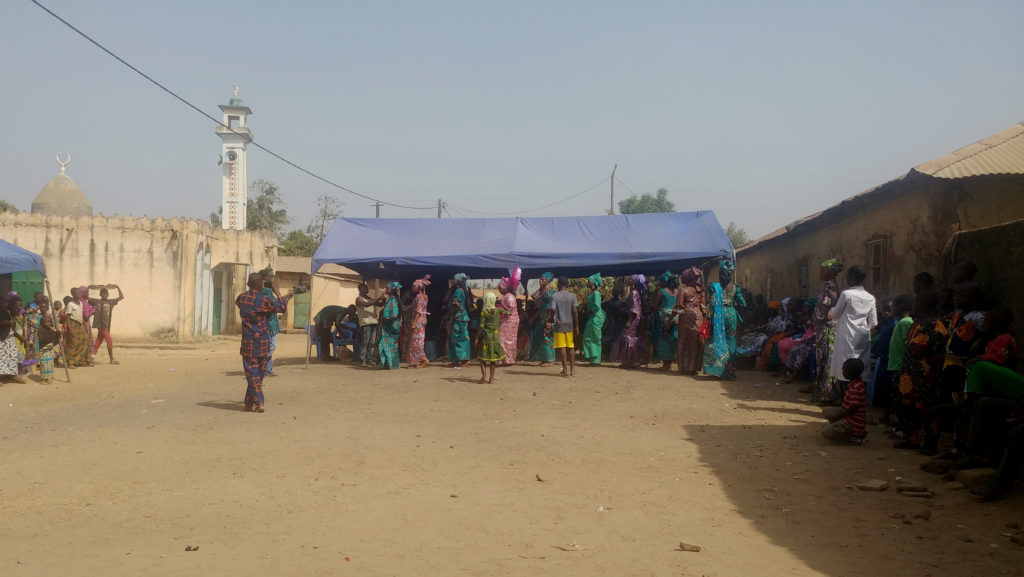
- Religion: In addition to the traditional religions, Christianity and Islam have almost an equal influence on the country. The region around Sokodé is predominantly inhabited by Muslims, whereas the coast is rather dominated by Christianity. In the capital Lomé all those different religions meet. My impression was that people dealt with religion quite openly and peaceful. Almost everyone believes in some kind of religion, but it seemed like the kind of faith you lived didn’t play much of a role.
- How little touristy the country really is: I didn’t see a single other white person in Lomé for the first three weeks, not even from a distance – I think that describes the situation pretty well.
- How nice it is to be able to be anonymous sometimes: Walking through the streets of Lomé at night I often had the feeling that Dota Kehr’s song line: “But hey, hey, whatever, I’m not cool, but I glow at night” (free translation) gained a whole new meaning for me. Lomé and most parts of Togo are, as described, hardly touristy at all and accordingly you always attract a lot of attention. That can lead to nice conversations, but can also be annoying sometimes.
- Being hit on by guys: I was often approached by guys in Lomé who obviously and intrusively tried to flirt with me and get my number. That can be really exhausting and at some point made me develop a super defensive attitude: I started to accuse everyone of the same intentions – without even giving them the chance to show the opposite. I believe and hope that in the meantime I could deal more openly with such situations and articulate my limits and intentions better, without immediately condemning every person. Nevertheless, it is always quite difficult to find a good balance between caution and openness.
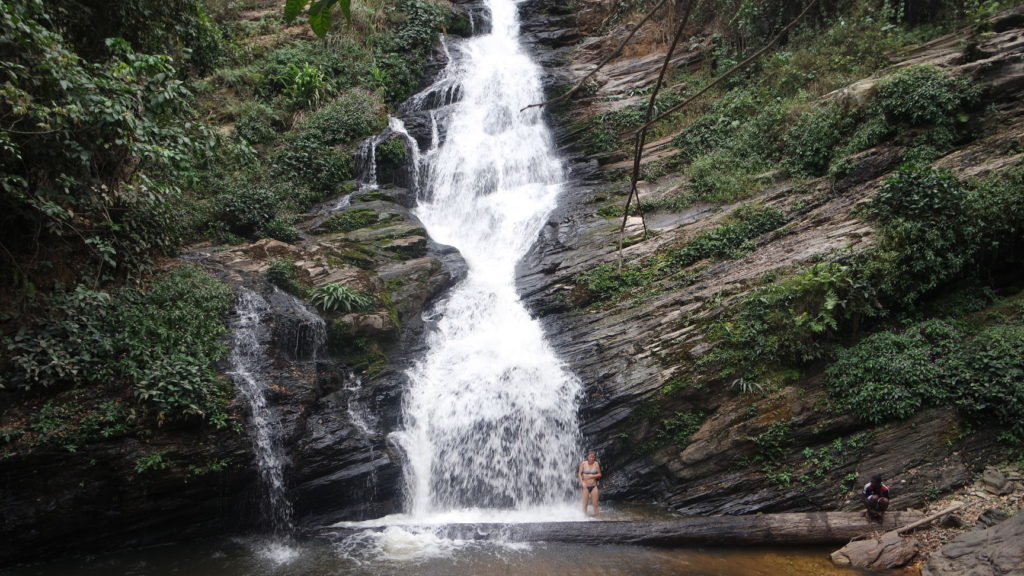
- The most beautiful places: the area around Kpalimé is really very recommendable (in fact for Togo also relatively touristy): here, a hilly, tropical landscape stretches out in front of one, interspersed with small coffee and cocoa plantations and many beautiful waterfalls; furthermore, the highest mountain of Togo is located here (the Mont Agou, with a proud altitude of 986 metres).
Sokodé (in the centre of Togo) is a rather tranquil, cosy city into which tourists seldomly find their way. I was lucky enough to be taken there for a wedding and thus to have a lot of contact with the residents. Surrounded by beautiful forests and with its lively sandy streets, the city is definitely worth a visit.
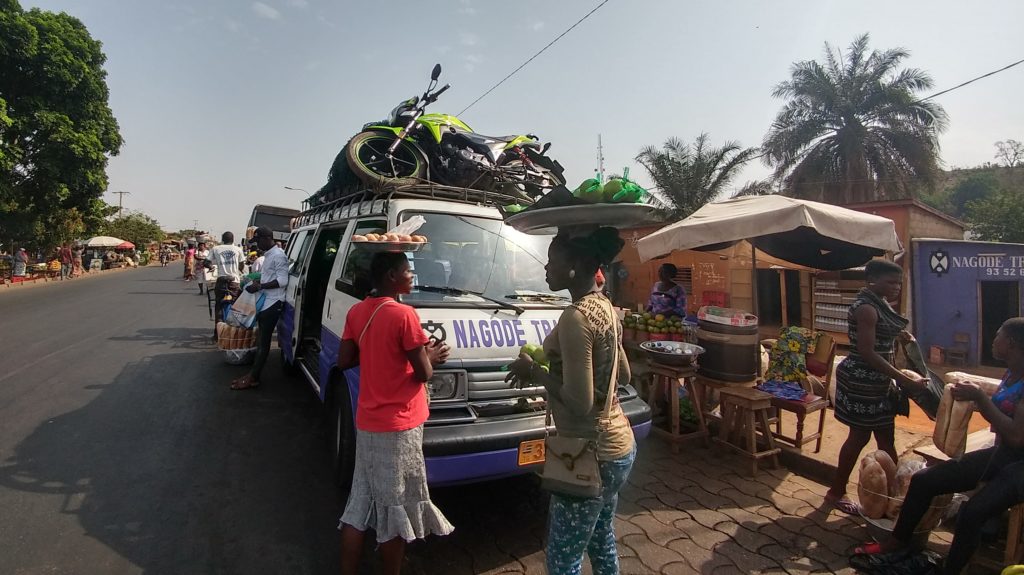
- The best way to travel around: The easiest and most popular way to get from place to place is by minibus: the bus company I can recommend is Nagode Transport. My trip to Sokodé cost 4500 cfa, that’s about 7 Euro. As far as I know, one always has to buy a ticket before the trip in the small houses of the company (in Lomé, the station where I bought a ticket and where the bus left is located in Agbalépédogan at the big street that leaves from the Eyadema Boulevard). You don’t have to worry about food, the buses stop at markets again and again. Usually, one does not even have to get off the bus, as the vendors immediately crowd around the vehicle and offer their delicacies.
Alternatively, one can also rent a car. At first, I thought I could simply walk to the AVIS rental office that was shown to me on my map in downtown Lomé. But the office was untraceable. When we asked shoe sellers for the way, they were super helpful and finally one of them arranged that we could rent the car of an employee of the German ambassador. So I guess the best thing would be to just ask people.
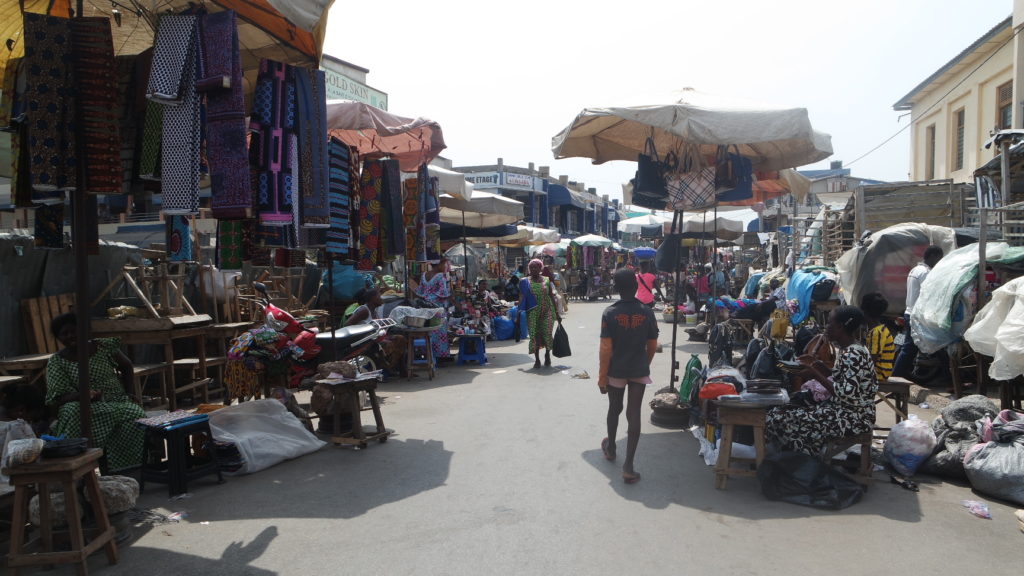
- Where to buy what best: it took me a long time to find out for myself what I would eat and where I could buy what best (made more difficult by the fact that I didn’t have a refrigerator at a constant temperature of 35°C): Super tasty vegetables and fruit can be found at every market and on many street corners; good baguettes and sweet loaves of bread (danger of confusion!) can be found pretty easily on the streets (although mostly exactly the stand you’re looking for won’t be there); for basic food like eggs or rice, the small shops at every corner are wonderful, but I was quite happy when I discovered bigger supermarkets in Lomé (e.g. Ramco), where you’ll also find something like oat flakes or quite good cheese (everything is quite expensive though), which can be really nice every now and then!
- What food you should try: Fufu (mash from yam root); Pâtes (mash from corn), respectively Djencoumé (like Pâtes, but mixed with onions and tomatoes and spiced, so that it does not taste so boring, but really delicious!), peanut sticks (hot snack from ground peanuts, which you can find on every market)
- What drinks you should try: Bissap juice (hibiscus juice, it tastes best with mint and freshly made); Sodabi (home-brewed palm schnapps – I don’t really like hard alcohol, but this really has something)
- A water filter would have made my life so much easier: the tap water in Togo is not drinkable and I really wish I would have had the idea of taking a water filter with me back then – that would have saved me so much money, stressful situations and endless water boiling.
- That I’ll always feel like a stranger: Where does being a stranger begin? That was a question I often asked myself during that time: with a foreign country, a foreign language, a foreign city or simply a foreign person? I think I went to Lomé with the claim to fit in perfectly there and found out that this won’t happen and will always take a lot of time anyways. Even if feeling at home is more or less a decision, feeling less foreign will always be a long process and sometimes it is better to acknowledge your strangeness than to fight to retouch it.
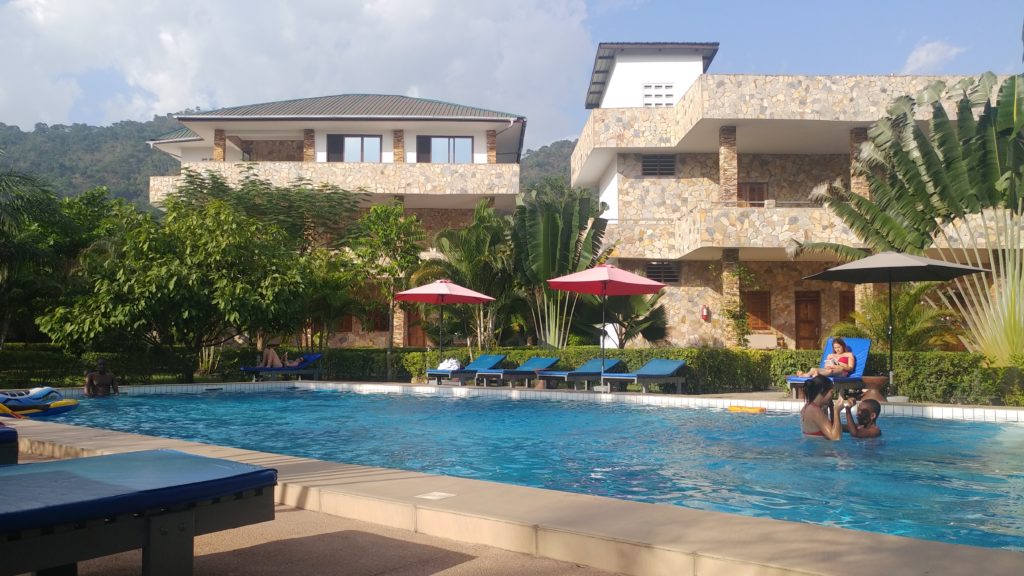
- It’s probably quite similar with privileges: I was born in a rich country, in a rich family, and I try to be aware of my luck, but that won’t change anything at all, except perhaps my conscience. I travel to Togo, although I know that a lot of people there could not simply travel to Germany. I enjoy being able to learn there for life and wonder if I couldn’t do the same without flying over half of the African continent. I don’t know and I guess everybody has to find their own answer.
- That I’m never free of racism: I grew up in a society full of racist stereotypes and structures, and no matter how hard I try to overcome them, speak and act openly and politically correct, I will always be shaped by them. And it’s super important to admit that.
- Politics: Togo has been ruled by an authoritarian regime since independence, first by Étienne Gnassingbé Eyadéma and now by his son Fauré Gnassingbé. There is a parliament which, like the president, is re-elected every 5 years. However, the fairness of the elections can be doubted. In autumn 2017 there were major protests against the government, and occasionally there were still student demonstrations on the university campus when I was there in February and March 2018. The protests were crushed by police and military, sometimes brutally and with dead. In December 2018 the last parliamentary elections took place: The largest opposition parties boycotted the election and 59 of the 92 seats went to the ruling party, letting it stay in power. However, it remains unclear whether the president will be able to push through his demand to extend his term of office. The mood in the country when I was there was rather depressed and hopeless. Despite their studies, the young people have virtually no prospects of finding jobs and have largely given up their belief in an improvement of the situation, also because of the apparent ineffectiveness of the protests.
